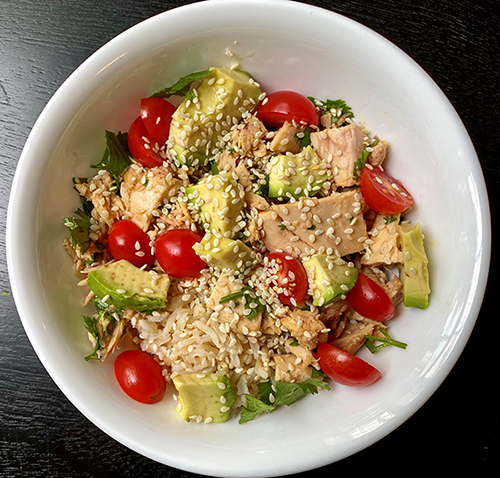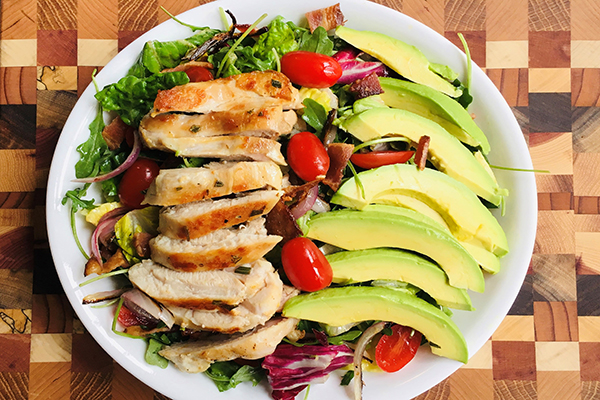
COVID-19 has significantly altered our lives in many ways. While we continue to focus on mitigating infection rates by staying at home, social distancing when out, frequent handwashing and wearing masks, it’s important to think about how we can increase our resilience so that if we do get sick with coronavirus, we suffer less and recover faster.
Though peer-reviewed research has yet to be published regarding the effectiveness of dietary lifestyle interventions for COVID-19 prevention or treatment, promising research is underway. Diet and lifestyle changes that benefit our overall health may also reduce the severity of COVID-19
Improving your overall health may improve your outcome if you get COVID #saslife Share on X

Overall Nutrition and Immune Health
Addressing any nutrient deficiencies or insufficiencies and reducing overall inflammation is important for optimizing our immune system health. Now is the time to make positive changes to your food intake.
Inflammation plays a big role in the severity of symptoms with COVID-19. Reducing your baseline inflammation levels is a prudent strategy that might help to improve outcomes. This is especially important for people with underlying medical conditions (including obesity and type 2 diabetes which are inflammatory in nature) since these conditions increase risk of severe illness from COVID-19.
Reduce inflammation:
- Reduce added sugar* and processed carbohydrates
- Reduce highly processed foods (including industrial seed oils like cotton seed, soybean oil and vegetable oil)
- Limit alcohol intake
- Eat a diet rich in colorful fruits and vegetables, 8-10 servings per day (mostly non starchy vegetables)
- Eat omega-3 rich foods (like wild salmon and sardines) at least twice a week
- Incorporate herbs and spices daily (especially garlic, ginger and turmeric)
- Overall, eat real whole foods!
- Get adequate quality sleep
*Excessive added sugar not only promotes inflammation, but studies show that it can dramatically reduce our immune system function. Limit added sugar to 25g per day.
Maintaining a healthy blood glucose range is also important to mitigate inflammation and support your immune system. Research has shown that there is a strong correlation between glucose control and symptom severity with COVID-19 as well.
When you eat may play a role as well. Animal and human studies are increasingly showing that eating food and beverages within an 8- to 12-hour window reduces disease and infection risk. Going too long without eating can be a stressor for some people, suggesting that using a 12-hour window is a safer option for most.
In addition to reducing inflammation, the flavonoids in fruits, vegetables, herbs and spices, at least in preliminary studies, have been found to help with either prevention or reduction of severity of symptoms in COVID-19. Many of these studies are in preprint they are so new. Even if these studies don’t pan out, we know that increasing these nutrient dense foods (fruits, vegetables, herbs and spices) has so many other immune boosting benefits that we need to start incorporating more now.
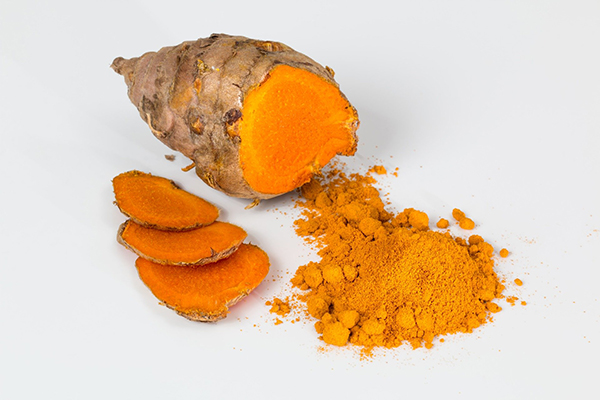
Key Nutrients
Ensuring that you have adequate intake and stores of key immune system nutrients plays an important role in infection resistance and supporting faster recovery.
Ensure adequate intake of:
Zinc
Zinc has been shown to impair viral replication of coronavirus, shorten the duration of upper respiratory illnesses and also help to regulate inflammatory molecules.
Zinc is found in many foods including meat, shellfish, legumes, nuts, seeds and whole grains. The absorption of zinc from plant-based foods can be reduced by certain compounds (phytates) found in those foods. Therefore, foods like red meat and oysters tend to be the best sources.
It’s also interesting to note that quercetin and EGCG (from green tea) help zinc do its job by increasing its transport into the cell.
Vitamin A
Vitamin A is a fat-soluble vitamin that is anti-inflammatory, enhances immune function and supports the lining of the respiratory tract. It is essential for maintaining the integrity and function of all mucosal surfaces (including our respiratory tract), which is front line defense against viruses.
There are two main sources of vitamin A:
- Animal-based: pasture-raised eggs, grass-fed dairy products and liver, which provide retinol
- Plant-based: carrots, sweet potatoes and butternut squash which provide pre-formed vitamin A, or carotenoids
The carotenoids from plant-based sources must be converted to retinol to be functional in the body. Some of us have a genetic variant for the enzyme that is required for this conversion, meaning that we might have a slow or low conversion rate. This could result in low vitamin A levels or vitamin A deficiency if you are only consuming the plant-based versions, so I would highly encourage you to get at least some of your vitamin A from high quality animal foods.
Vitamin D
Vitamin D3 controls the expression of over 200 genes and is a major regulator of a balanced and appropriate immune response. When taken in adequate and not excessive amounts it’s been shown to reduce the risk of respiratory infections. Preliminary studies suggest that people with lower levels of vitamin D are more likely to test positive for the coronavirus and have more severe symptoms of COVID-19. Vitamin D may also reduce the need for intensive care.
We get the majority of our vitamin D from sun exposure, but many of us aren’t outside enough for this to happen. Only a few foods have more than 200 IU of vitamin D per serving, so supplements are generally necessary. Salmon, mackerel and sardines are the best food sources of vitamin D.
Like vitamin A, too much vitamin D can be toxic since it’s also a fat-soluble vitamin. It’s helpful to have your levels tested first to determine dosage needs. It’s common for vitamin D levels to be low, so a good place to start for most people is 1000 IUs per day.
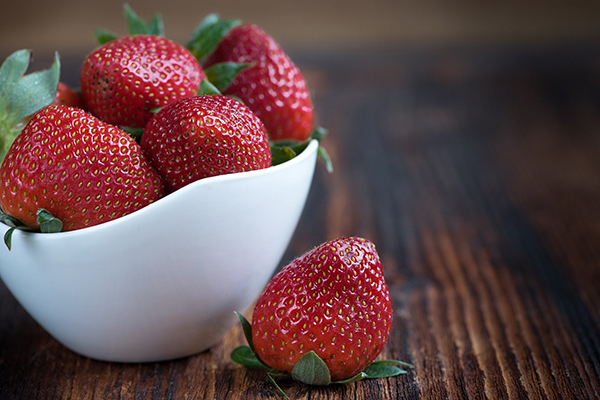
Vitamin C
Vitamin C is a potent antioxidant and is needed for immune cells to function properly. It has been shown to reduce the duration of viral infections. Higher doses of vitamin C during an illness can also act as a natural antihistamine and anti-inflammatory.
Vitamin C is found in many fruits and vegetables including citrus, strawberries, bell peppers, tomatoes, broccoli and cauliflower.
Vitamin E
Vitamin E is a powerful antioxidant. It also plays a major role in how our immune system responds. Vitamin E is found in nuts and seeds like sunflower seeds and almonds, also in avocado and spinach and other foods.
Selenium
Selenium is an antioxidant that helps boost the body’s defenses against bacteria and viruses. It also has anti-inflammatory affects. Brazil nuts are by far the richest source of selenium. It is also found in yellow fin tuna, halibut, sardines and smaller amounts in turkey and eggs.
Additionally, potassium seems to play a role in the severity of symptoms. One study out of China, showed that all COVID patients had low potassium, likely a result of the virus itself, but those that started off with low potassium had worse symptoms. According to studies, only between 2%-7% of US adults consume adequate potassium. Potassium is found in many fruits and vegetables, so keep aiming for that 8-10 servings per day.
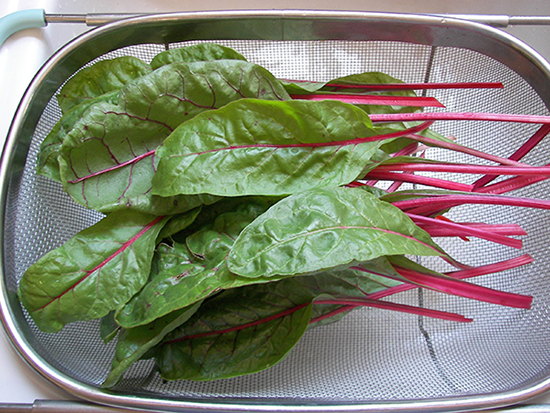
Other natural compounds
As you can imagine there are many areas of study around prevention, mitigation of symptoms and treatment for COVID-19. Natural compounds are one of those areas of study. The following compounds (beyond vitamins and mineral already mentioned) show promise in either prevention, symptom reduction or reduction in duration of symptoms.
- Quercetin
- Curcumin
- Epigallocatechin gallate (EGCG)
- N-acetylcysteine
- Resveratrol
- Melatonin
- Elderberry
- Palmitoylethanolamide (PEA)
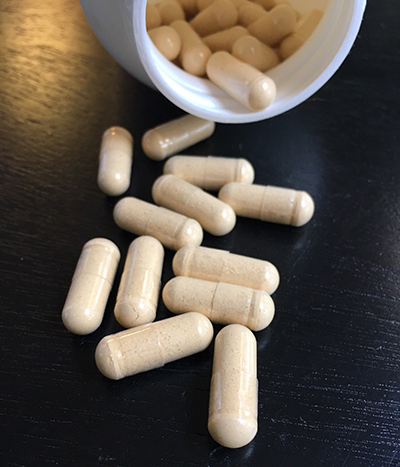
Beyond Nutrition
Of course, we can’t talk about optimizing our immune system without mentioning sleep, stress and movement. All can have a profound impact on our health.
Chronic stress and inadequate sleep can deplete your immune system. Prioritize sleep, keeping sleep and wake times similar each day. Find ways to get morning sun light and create a bedtime routine for yourself to help your body wind down and prepare for sleep. Check out these sleep hygiene tips for more suggestions on how to optimize your sleep. Find ways to reduce your stress (like minimizing the amount of time you are watching the news and scrolling social media) and change how your respond to the stressors you cannot change, like biofeedback, meditation, counseling, journaling, etc.
Take advantage of the benefits SAS offers in these areas from Work/Life and the RFC.
Exercise has a bell-shaped effect. It can improve immune system functioning, unless you are doing too much, then it can negatively impact immune system functioning. What constitutes “too much” is different for everybody, so pay attention to your body. If you find that you get injured frequently, have a difficult time recovering from exercise, or have excessive fatigue, you might be overtraining. Talk to a qualified personal trainer (like we have at the RFC) for an appropriate program that includes rest days.
Please remember:
- These strategies are not a substitute for physical distancing, hand washing, not touching your face, etc.
- Call your health care provider if you develop a fever, cough and difficulty breathing.
- Talk to a qualified dietitian/nutritionist or your health care provider before starting any dietary supplement; there is a huge range of quality between brands, high doses of some supplements carry risks and many times there might be drug interactions as well.
SAS Resources for COVID-19:
Easy Tuna Poke Bowl
Servings: 2
Recipe Adapted From: TheKitchn.com
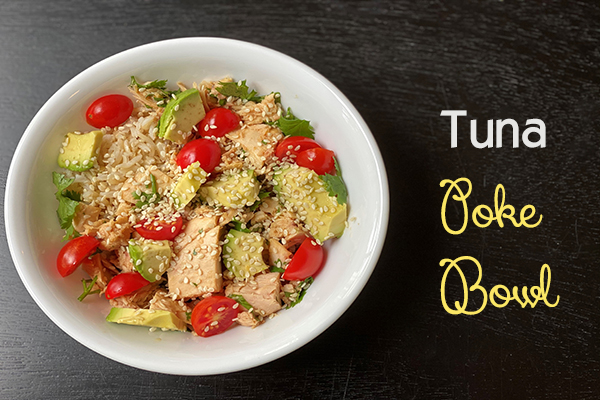
Ingredients
- 2 teaspoons soy sauce or tamari
- 1 teaspoon sesame oil
- ½ an orange, juiced
- 1-inch piece of ginger, peeled and grated or minced
- 2 (5-ounce) cans tuna, drained (or canned wild salmon)
- Small handful of cilantro, chopped
- 1 scallion, finely chopped
- 1 cup cooked rice or other grain, cooled
- ½ to 1 medium avocado, cubed
- ½ cup halved or quartered cherry tomatoes (or more)
- 1 tablespoon sesame seeds
Directions
Place the soy sauce, sesame oil, orange juice and ginger in a small bowl and whisk well.
Empty the drained tuna into a small bowl and pour the dressing over top.
Add in the scallion and cilantro then toss to coat well.
Divide the rice between two bowls and top with the dressed tuna, avocado, tomatoes and sesame seeds.
Notes
The quality of the canned tuna makes or breaks this easy meal. Use a high quality tuna if you can.
